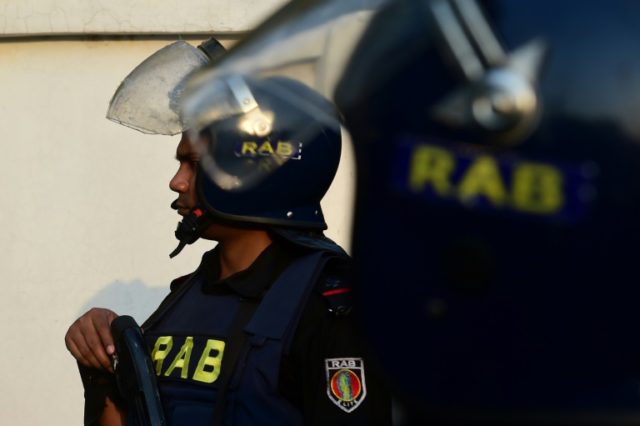Dhaka (AFP) – Bangladeshi police said that a top Islamist extremist in police custody was killed on Thursday, in the latest in a string of what activists suspect are extra-judicial killings.
Abdur Rahman was a regional military chief of a group blamed for a 2016 attack on a Dhaka cafe that killed 22 hostages including 18 foreigners, police said.
Held since July 24 over the murder of a secular publisher, Rahman died on Thursday morning in an ambush by extremists as he accompanied officers on a search operation in the central town of Sirajdikhan, they said.
“He was shot dead during a gunfight with the extremists,” district police chief Zaidul Alam told AFP.
Two policemen were also injured, police said.
Over the past two years, security forces have shot dead more than 80 alleged militants. Hundreds of suspected Islamists have also been arrested and scores sentenced to death.
The murder on June 11 of Shahzahan Bachchu, 60, a publisher and a former Communist Party official, reawakened worries over a renewal of extremist attacks in the Muslim-majority country.
Police said Rahman had admitted that his group was behind the murder.
Police were initially slow to finger Islamists as it was the first such killing in more than two years, but counter-terrorism officers later told local media that they thought extremists were indeed to blame.
Rahman was the “Dhaka regional military wing chief” of Jamayetul Mujahideen Bangladesh (JMB), Alam said.
JMB, founded by Bangladeshi jihadists who took part in the Afghan civil war in the 1990s, regrouped after the execution of its founder and top leadership in 2007, attacking the Holey Artisan Bakery in July 2016.
The subsequent crackdown has raised concerns among activists and rights groups.
“We have said from the very beginning there are questions about these crossfire or gun battle deaths,” Nur Khan Liton, a prominent activist and formerly the head of rights group Ain o Salish Kendra, told AFP.
“There are reasons to believe that these suspected extremists were in fact victims of extra-judicial killings,” he said.
“Had he been alive, police would have the opportunities to get key information about his network and the murder of the publisher.”

COMMENTS
Please let us know if you're having issues with commenting.